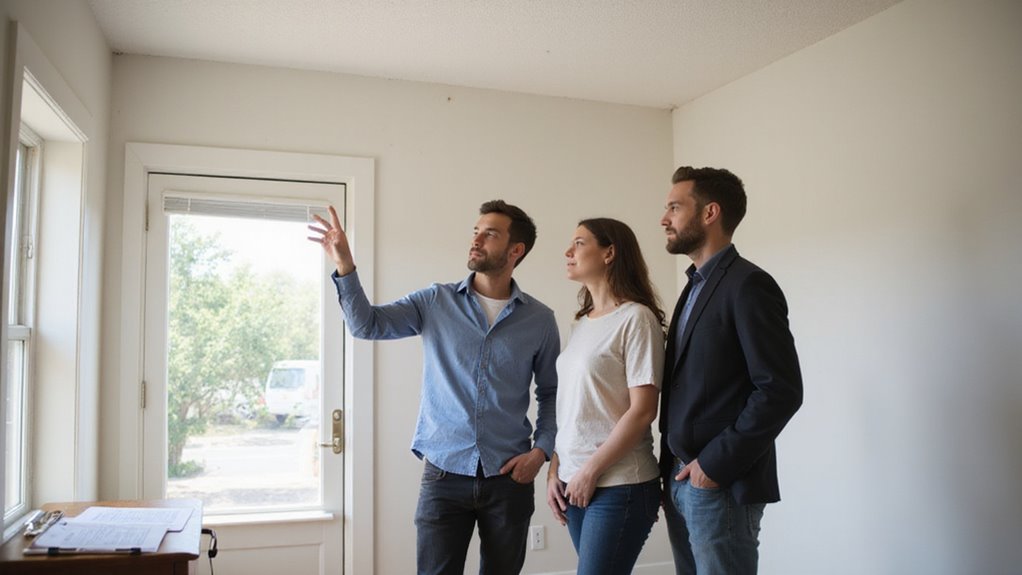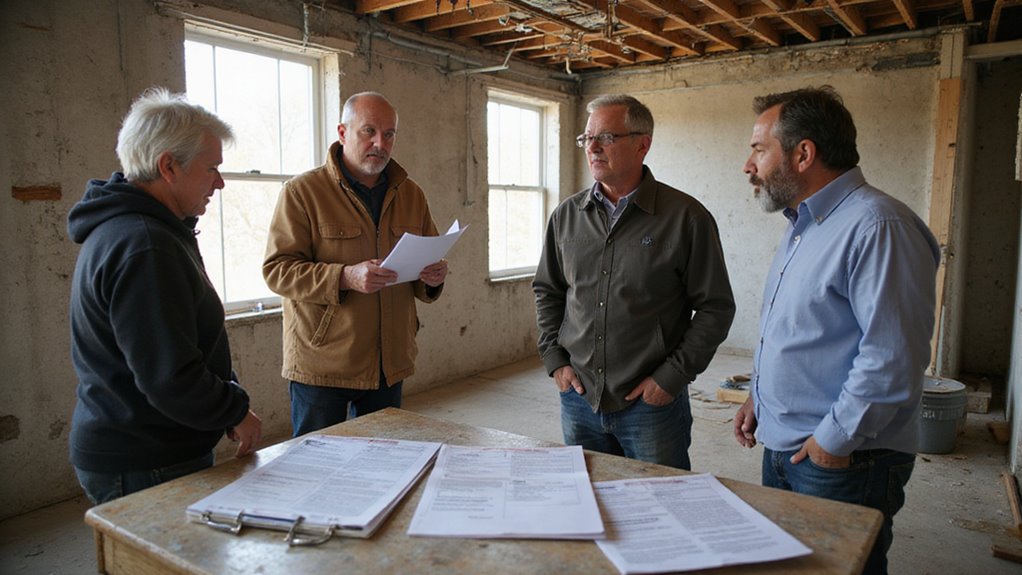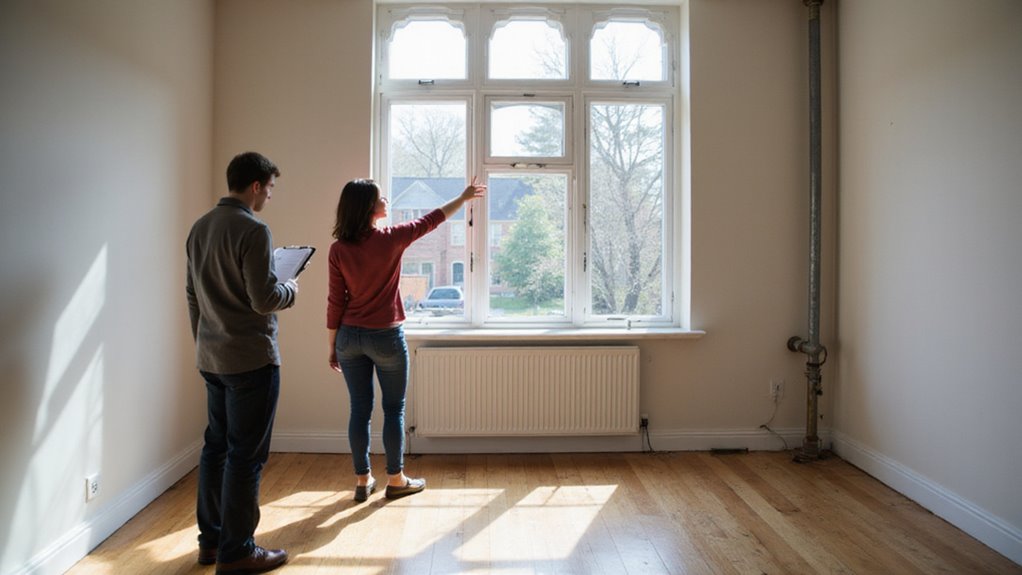Selling a home with code violations can be stressful and confusing. Many sellers worry about legal trouble or losing buyers if they reveal these issues. Yet, hiding violations is risky and can lead to bigger problems later.
Buyers who discover hidden code violations may sue, demand repairs, or back out of the deal. Laws in many states require full disclosure, and ignoring these rules can result in heavy fines. The stress of a failed sale or a lawsuit can be overwhelming.
The best way to disclose code violations to buyers is to be honest, clear, and proactive about any known issues. You should gather all necessary documents, explain the situation, and answer questions directly.
This builds trust and helps the sale go smoothly. This blog will guide you step-by-step on how to disclose code violations and avoid unnecessary trouble.
Key Takeaways
- Disclose all known code violations in writing early in the transaction process, including details and supporting documents.
- Provide buyers with copies of permits, inspection reports, violation notices, and any repair estimates from licensed contractors.
- Clearly explain the risks, costs, and status of all violations, including whether repairs have been completed or are still needed.
- Maintain records of all disclosures, communications, and agreements to protect against future legal claims or disputes.
- Follow all state and local disclosure laws, and consult real estate professionals to ensure full compliance and transparency.
Understanding What Constitutes a Code Violation

A code violation happens when a property does not meet minimum safety, health, or building standards. These standards are set by local, state, or federal rules. Meeting these codes keeps buildings safe for everyone.
Sellers must know about code violations before selling a property. Any known issues should be fixed or reported to potential buyers. If sellers ignore violations, they could face legal trouble and lose buyers’ trust. Local buyers who offer fair cash offers often help sellers handle properties with code violations efficiently.
Sellers should check all rules that apply to their property. If unsure, they can ask building inspectors or legal experts for help. Proper disclosure of violations protects sellers from lawsuits and supports a fair sale. When selling a home with code violations, working with local investors who understand the West County real estate market can help ensure a smoother and more transparent transaction.
Common Types of Code Violations in Residential Properties
You need to watch for common code violations like outdated electrical systems, unauthorized additions, and plumbing issues that don’t meet current standards. Each of these problems can create safety risks and expose you to legal liability if left unaddressed.
When considering an as-is sale, it’s important to understand how buyer interest is typically reduced for properties with unresolved code violations, as this can impact your final sale price and marketing strategy.
Understanding these specific concerns helps you comply with disclosure laws and protect both your investment and your reputation. If you’re selling a home as-is, no repairs, showings or open houses are needed when working with experienced local buyers.
Electrical System Issues
Electrical system issues are a common cause of code violations in homes. Outdated wiring, overloaded circuits, or illegal changes can create serious dangers. These problems often lead to shocks or fires if not fixed.
Homeowners must report any known electrical problems to buyers. Missing outlet covers, exposed wires, or faulty junction boxes are red flags during an inspection. If buyers find these issues later, the sale could be delayed or canceled.
If you find electrical problems, it is best to document and share them with buyers. Doing this protects you from legal trouble. It also helps buyers understand the risks before making a decision.
Illegal Additions Concerns
Illegal additions happen when homeowners build or change rooms without required permits. These changes often break local building rules. Both sellers and buyers should understand the risks involved.
Unauthorized work can cause legal and financial problems. Insurance companies may not cover damages from unapproved changes. Lenders might refuse loans for homes with illegal additions.
Sellers must tell buyers about any work done without permits. Written disclosure and any available paperwork should be provided. This helps prevent legal issues after the sale.
If you know about unpermitted changes, check with local building officials. They can explain what is needed to fix the problem. Taking action early helps everyone make better decisions.
Plumbing Code Deficiencies
Plumbing code deficiencies are common problems in many homes. These issues can be expensive to fix and may cause legal trouble. Homeowners should check if their plumbing meets local code standards.
If you need to disclose code violations, focus on pipe fittings and fixtures. Even small mistakes can become major problems later. Buyers must know about any plumbing issues before they purchase a home.
Some frequent violations include improper pipe fittings that could leak or mix water supplies. Inadequate venting might lead to poor drainage or sewer gas entering the house. Using unapproved materials can break local rules and affect insurance coverage.
Fixtures installed without permits or against manufacturer instructions can create safety risks. Full disclosure of these problems protects sellers legally. It also helps build trust with buyers.
Legal Requirements for Disclosure
You must tell buyers or tenants about known code violations before selling or leasing a property. Laws in your area may require this disclosure. If you do not follow these rules, you could face fines or legal problems. When disclosing, it’s important to understand how capital gains tax exclusion may be affected if violations impact your ability to sell as a primary residence.
Disclosures need to cover all known problems, such as issues with safety, structure, or the environment. If a violation involves hazardous materials, buyers may ask more questions. Always give these disclosures in writing.
You should be careful with privacy when violations affect tenant spaces or private information. Written records help protect you and show you followed the law. Consult a lawyer to make sure you meet all local rules. Additionally, failing to disclose issues like mold or asbestos can result in legal responsibility and lawsuits later on.
How to Identify Existing Code Violations

You should start by thoroughly inspecting property documentation, including permits, inspection reports, and renovation records, to spot any discrepancies or missing approvals. Consult your local building authority to verify compliance with current codes and to uncover any documented violations tied to the property. Taking these steps ensures you’re identifying issues accurately and fulfilling your legal obligations.
For homeowners in St. Peters, it’s especially helpful to understand that selling as-is is a viable option if code violations are present, as local buyers like Freedom Path Investors purchase homes in any condition. You can also seek guidance from local real estate market experts who specialize in handling properties with code violations, as they can offer personalized solutions and help you navigate the process efficiently.
Inspecting Property Documentation
To ensure a property follows local rules, check its documents carefully before sharing it. This helps solve buyer worries and protects the property title. If you skip this step, you may face legal issues later.
Review the property title to confirm there are no liens or claims. If you find any, sort them out before selling. Unresolved claims can delay or stop the sale.
Check all permits for past renovations or changes. Permits show if work was allowed and done properly. If any permits are missing, fix the problem before listing.
Look at the certificate of occupancy to make sure the property’s use is legal. The property’s current use must match what is allowed by law. If they do not match, address the issue right away.
Read inspection reports to spot any code violations. If inspectors noted problems, these should be fixed or disclosed. Unresolved issues can lower the property’s value or cause legal trouble.
A careful review of all documents can prevent surprises. Buyers will trust you more if you are thorough. If you follow these steps, you can avoid many common problems.
Consulting Local Building Authority
You should consult the local building authority before selling a property. They provide accurate details about permits and building codes. This helps you avoid legal issues during the sale.
The authority can supply records of past permits, inspections, and any violations. These records show if work was permitted and done by licensed professionals. If you find unpermitted work, you must fix it or inform buyers.
Checking with the building authority reduces your risk of future problems. It also shows buyers you are honest and careful. If you want a smooth sale, always confirm your property meets all local rules.
The Role of Home Inspections in Detecting Violations
Home inspections help find building code violations in homes. Inspectors look for hidden problems that most people cannot see. If issues are found, sellers must fix or disclose them before selling.
Inspectors check the structure, including the foundation, roof, and support walls. If there are safety concerns, they note them. Any damage or code violations must be addressed. Working with local cash buyers can provide an option to sell your house quickly even if these structural issues exist.
Home inspectors examine foundations, roofs, and support walls, noting any safety concerns or code violations that need attention.
If electrical or plumbing work was done, inspectors make sure it follows local codes. Unapproved changes or unsafe wiring are reported. Buyers and sellers then know about possible risks.
Inspectors look for safety features, like smoke detectors and handrails. Missing or broken safety items are violations. Homeowners can fix these to meet legal rules.
If any work was done without permits, inspectors will find it. Unpermitted changes must be corrected or properly documented. This ensures all work meets legal standards.
Sellers in Florissant can also work with cash home buyers who purchase houses as-is, even if there are code violations or repairs needed.
Gathering Documentation Related to Code Issues

You need to collect official inspection reports to establish a clear record of any code violations present. Compile detailed repair cost estimates from licensed contractors to quantify the financial impact and support your disclosures. Accurate documentation not only strengthens your legal position but also ensures transparency with potential buyers.
Reviewing the original contract terms can help you understand any additional obligations related to code violations that may affect the sale process. Working with a trusted local home buyer can further simplify the process, as they are experienced in handling properties with code issues and can guide you through proper disclosure requirements.
Collect Official Inspection Reports
The best way to confirm property code violations is by collecting official inspection reports. These reports provide solid proof of any issues. They also show buyers that you are honest and following the law.
You can get inspection reports from your local building department or code office. If there are violation notices, request copies that list what happened and when. Documents about environmental risks, like lead paint, should come from the right agencies.
Historical permits show if work was approved by the city. If you gather all these records, your disclosures will be complete. This helps protect you and informs the buyer.
Compile Repair Cost Estimates
To estimate repair costs, get quotes from licensed contractors. Ask for itemized estimates for each code violation found. Attach these quotes to your disclosure package for buyers to review.
Buyers need to know about possible fines or penalties if repairs are not made. If you provide clear cost estimates, buyers can plan their budgets. Accurate records also show you have met your legal duties.
Complete repair cost estimates protect you from future disputes. Proper documentation helps buyers understand all code-related issues with the property. If you follow these steps, you reduce your risk of legal problems later.
Communicating With Your Real Estate Agent
Talking openly with your real estate agent is very important when dealing with code violations. Agents help you meet disclosure laws and protect your interests. If you have violations, you should tell your agent right away.
You should give your agent all documents, such as inspection reports and repair estimates. This helps your agent give buyers the correct information. Foundation issues directly lower the home’s value, which is another reason to be transparent from the start. If you are not sure what to share, ask your agent for advice.
Your agent can explain what the law requires you to disclose. If you do not follow these rules, you could face legal trouble. Always check with your agent about local and state rules.
Work with your agent to decide when and how to tell buyers about the violations. Your agent can help plan the best way to share this news. If buyers have questions, your agent should answer them clearly and honestly.
If you decide to sell your house without an agent, you’ll need to make sure you understand disclosure requirements on your own and carefully communicate all known code violations directly to potential buyers.
Best Practices for Disclosing Violations to Buyers

You should tell buyers about any known code violations on your property. Honest and clear disclosure is necessary to avoid legal problems. This helps buyers understand what issues exist before making a decision.
If you know when and how violations happened, share these details. This history helps buyers see if the problem is new or old. Some communities may worry more about certain violations than others.
You must follow all state and local disclosure laws. If you fail to do this, you could face legal trouble. Proper disclosure protects both you and the buyer.
Always answer buyer questions clearly and completely. Sellers should keep records of all conversations with buyers. These steps help prevent future disputes.
If your property has code violations related to asbestos disclosure laws, you are legally required to inform buyers and provide documentation about the presence and condition of asbestos.
Writing a Clear and Accurate Disclosure Statement
A disclosure statement is a legal document. It must be clear and accurate to protect you from legal trouble. You should state any issues with the property honestly.
List each code violation you know about. Include the date and any official notices you received. If you fixed a problem, mention what you did and keep records.
Some violations may still be unresolved. You should explain why these issues remain. If you have not fixed something, state the reasons clearly.
Reference the local laws for each violation. This helps show you understand your legal responsibilities. If you need help, contact your local government for guidance.
This method helps make your statement complete and defensible. If you follow these steps, you can avoid future disputes. Always double-check your statement before sharing it.
Potential Consequences of Failing to Disclose

Failing to disclose known code violations can have serious consequences. If you do not report these issues, you risk legal and financial trouble. Full disclosure protects you from these problems.
Buyers may sue if they find violations after buying the property. Courts can make you pay for repairs, legal costs, or even cancel the sale. In some places, hiding violations may lead to fraud charges.
Your reputation as a seller may suffer if you do not disclose issues. Future buyers might avoid working with you. If you want to avoid these risks, always share all known problems with buyers.
Negotiating Repairs or Credits With Buyers
When you tell buyers about code violations, you need to agree on how to fix them before closing. You can repair the violations yourself or offer a credit for the buyers to fix them later. Early and clear disclosure helps build trust and makes negotiations easier.
If you choose to negotiate, present repair estimates from contractors to support your offer. Buyers may want repairs finished before closing, so set clear deadlines. You can also offer a credit at closing if the buyer prefers to handle repairs.
Always update the purchase agreement to show any repair or credit terms. This ensures the deal is legally correct and avoids confusion. Careful documentation protects both sides from future problems.
Working With Local Authorities to Address Violations
You need to promptly initiate code violation reports with the appropriate local agencies to avoid further penalties. Coordinate all required inspections by working directly with municipal officials, ensuring each step meets regulatory standards. Stay aware of compliance deadlines, as missing them can lead to legal consequences and additional costs.
Initiating Code Violation Reports
You should report property code violations to keep your home safe and legal. Reporting also helps protect you from future problems. If you ignore violations, you could face fines or legal trouble.
First, check your property for any possible code violations. Make a list of any issues you find. If you are unsure, ask a professional for help.
Next, gather documents, permits, or photos that show the violations. Good records can help explain your case to officials. These can also protect you from liability.
Then, contact your local code enforcement office. Use their official website or phone number to report the violations. Give clear details about each problem.
Finally, keep track of your report and any responses. Save all emails and letters from the authorities. If you plan to sell, share this information with buyers.
Coordinating Required Inspections
After you report a code violation, inspections are usually required. Inspectors need to check the problems and see what must be fixed. You will have to arrange access to all areas they need to see.
You should collect documents about your property’s zoning and any permits. Inspectors will look for violations of local or environmental rules. If you do not have the right permits, they may suggest changes.
Inspectors are neutral and only check facts. You should answer their questions truthfully and share all records. Keeping good communication with officials will help you through the process.
Navigating Compliance Deadlines
Property owners can meet compliance deadlines by acting quickly and staying organized. Address violations as soon as they are found to keep the property marketable. Timely responses help avoid problems when selling or advertising your property.
Owners should contact the local code enforcement or building department right away. Officials will explain what needs to be fixed and what the deadlines are. If more time is needed, formal extension requests should be made with clear plans for fixing the issue.
All communication with local authorities should be documented. These records can support your position if questions come up during a sale. If there are updates or progress, listing descriptions and marketing materials should show this clearly.
Clear and honest updates will give buyers confidence in your property. Accurate information also helps prevent legal issues during negotiations. If you follow these steps, you increase your chances of a smooth sale.
How Code Violations Can Affect Property Value
Unresolved code violations usually lower a property’s value. Buyers see these issues as risks and may offer less money. Lenders may also refuse to finance properties with code violations.
Appraisers consider the cost of repairs when valuing a property. If violations remain, the property may stay longer on the market. Sellers often end up accepting lower offers to close the deal.
If you address code violations early, you can protect your property’s value. Understanding these effects helps you make better choices when selling. Proper disclosure and repairs can attract more buyers and secure financing.
Tips for Ensuring a Smooth Transaction Despite Violations
If your property has code violations, you can still make the sale go smoothly. Taking certain actions can help you avoid legal trouble and build trust with buyers.
Sellers should always tell buyers in writing about any known code violations. This meets legal requirements and protects you from future problems.
Giving buyers repair cost estimates helps them understand the real expense of fixing issues. If needed, sellers may adjust the sale price or offer repair credits. Completing some repairs before closing can also keep buyers interested.
A real estate attorney can help you make sure all your paperwork follows local laws. Legal advice protects your interests and reduces the risk of disputes later. If you cover these steps, you are more likely to have a smooth sale.
Conclusion
If you disclose code violations clearly, you help buyers understand the property’s condition. This transparency can prevent misunderstandings and legal issues. If you provide all documentation and inspection reports, you make the process smoother for everyone involved.
If you follow local laws and keep good records, you protect yourself during the sale. If you work with professionals, you can handle repairs or offer clear options to buyers. If you use these steps, both parties can move forward with confidence.
If you want to sell your house quickly, we buy houses for cash in any condition. We at Freedom Path Investors make the process easy, even if there are code violations. Contact us today to see how we can help you move forward.








